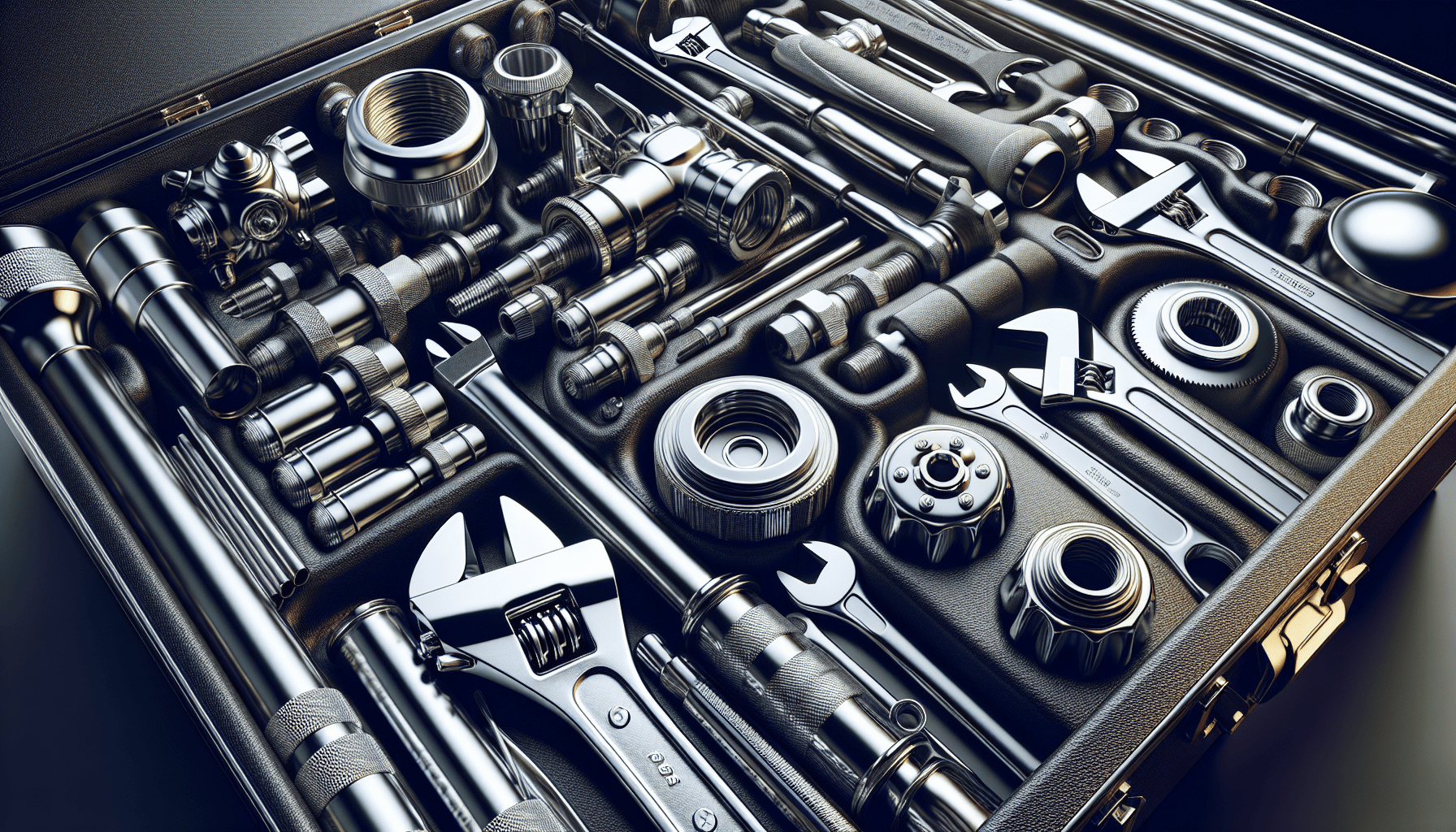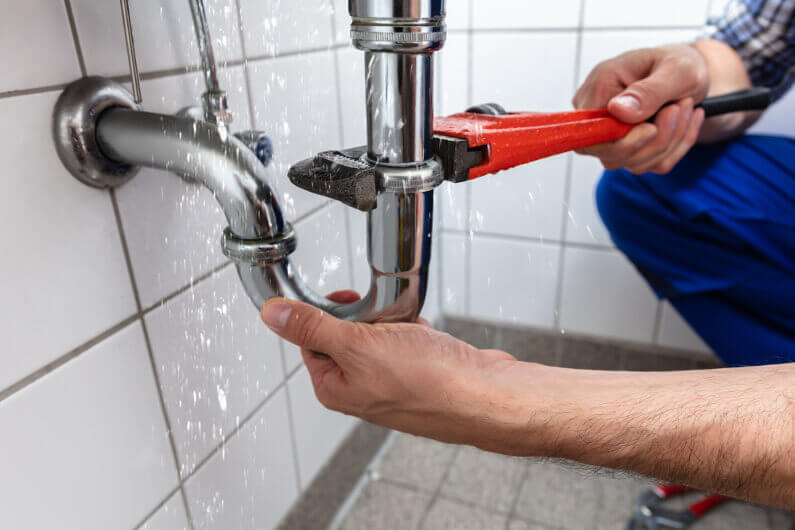So you’ve just had a plumber come to your rescue, fixing that leaky faucet or unclogging a stubborn drain. Now comes the age-old question: How much should you tip? While tipping etiquette can vary in different industries, showing your appreciation for a job well done is always a gracious gesture. In this article, we’ll explore some factors to consider when deciding on an appropriate tip for your plumber, ensuring you strike the perfect balance between showing gratitude and maintaining your budget. Whether you’re a seasoned homeowner or a first-time renter, we’ve got you covered with some helpful tips.
Factors to Consider
Time and Complexity
When determining how much to tip a plumber, it is important to consider the time and complexity of the job. Plumbing jobs can range from simple repairs or installations to more complex projects that require extensive knowledge and expertise. If a plumber spends a considerable amount of time working on your plumbing issue or if the job requires a high level of skill, it may be appropriate to tip them accordingly.
Quality of Service
The quality of service provided by a plumber is another factor to consider when deciding on a tip amount. If the plumber is efficient, professional, and completes the job to your satisfaction, it may be appropriate to show your appreciation by leaving a tip. On the other hand, if the plumber is unprofessional or does a poor job, you may choose not to tip or to provide a smaller tip.
Level of Professionalism
The level of professionalism exhibited by a plumber can also impact the amount you choose to tip. A professional plumber will arrive on time, be courteous and respectful, and conduct themselves in a professional manner throughout the job. If the plumber goes above and beyond to provide exceptional service, you may feel inclined to tip them generously as a gesture of gratitude for their professionalism.
Average Tipping Range
Industry Standards
In the plumbing industry, tipping is not necessarily expected or required. However, if you choose to tip your plumber, it is generally recommended to tip between 10-20% of the total bill. This range is in line with the tipping customs of other service industries, such as restaurants or hair salons. Keep in mind that this is just a guideline and the final decision on the tip amount is ultimately up to you.
Country-specific Customs
Tipping customs can vary from country to country. In some countries, such as the United States, tipping is common practice and expected for various services. In others, such as the United Kingdom, tipping may be less common or not expected at all. It is important to consider the customs of the country you are in when deciding whether or not to tip your plumber.
Personal Budget
Your personal budget is another important factor to consider when determining the tip amount for a plumber. While it is nice to show your appreciation through a tip, it should never put you in financial hardship. Take into account your own financial situation and tip accordingly. If you are unable to tip a plumber monetarily, there are alternative ways to show your gratitude, which will be discussed later in the article.
Determining the Tip Amount
Percentage of Total Bill
One method for determining the tip amount is to calculate it as a percentage of the total bill. As mentioned earlier, the recommended range for tipping a plumber is between 10-20% of the total bill. To calculate the tip, multiply the total bill by the desired tip percentage (e.g., 15% or 0.15) and add that amount to the total.
Fixed Rate
Another approach is to tip a plumber a fixed rate based on the scope of the job. For example, you might decide to tip $20 for a smaller repair or $50 for a larger, more complex job. This method allows you to establish a consistent tip amount regardless of the total bill, which can be particularly useful if you are on a tight budget or if the bill is unexpectedly high.
Round Up Approach
A round-up approach involves rounding up the total bill to the nearest whole number and tipping based on that amount. For example, if the total bill is $78.50, you could round it up to $80 and tip $2 or round it up to $100 and tip $22. This method can be a simple way to determine the tip amount without needing to calculate percentages or specific fixed rates.
Tips for Making the Decision
Consider the Plumber’s Expertise
When deciding how much to tip a plumber, it can be helpful to consider their level of expertise. If the plumber demonstrates extensive knowledge and expertise in their field, it may warrant a larger tip as a recognition of their skill and professionalism.
Evaluate the Difficulty of the Job
The difficulty of the plumbing job can also play a role in determining the tip amount. If the job was particularly challenging, required specialized skills, or took an extended period of time to complete, you may choose to tip more generously to acknowledge the plumber’s hard work and dedication.
Assess the Overall Experience
The overall experience you had with the plumber can also influence your decision on the tip amount. If the plumber was punctual, communicative, and respectful, and if they successfully resolved your plumbing issue, it is likely that you had a positive experience. In such cases, you may feel more inclined to leave a larger tip as a way of expressing your satisfaction with the service provided.
Alternatives to Tipping
Offering Positive Feedback
One alternative to tipping a plumber is to provide them with positive feedback. Taking the time to express your appreciation verbally can go a long way in showing your gratitude for their services. Letting the plumber know that you were satisfied with their work and professionalism can be just as meaningful as a monetary tip.
Writing a Thank You Note
Another way to express your appreciation is by writing a thank you note or sending a follow-up email to the plumber. In the note, you can specifically mention what you liked about their service and how they helped resolve your plumbing issue. This personal touch can make a lasting impression and let the plumber know that their hard work did not go unnoticed.
Providing Referrals
If you were extremely satisfied with the plumber’s services, consider providing referrals to friends, family, or colleagues who may be in need of plumbing assistance. Word-of-mouth recommendations can be invaluable for plumbers seeking new clients, and it can be a meaningful way to support their business without tipping directly.
Exceptions and Special Cases
Emergency Situations
In emergency situations where a plumber has provided immediate assistance to prevent damage or address a serious issue, a larger tip may be appropriate. Emergency plumbing services often come with an additional charge, so it is important to consider this when determining the tip amount.
Fixed-Price Services
For fixed-price plumbing services, such as installing a new fixture or appliance, tipping may not be customary. However, if the plumber went above and beyond in their service or if you had an exceptional experience, you may still choose to tip as a gesture of gratitude.
Contracted Agreements
If you have a long-term contract or an ongoing relationship with a plumber, tipping may not be necessary or expected. In such cases, it is common to express your appreciation through repeat business and continued loyalty rather than monetary tips.
Discussing Tipping Upfront
Asking for an Estimate
When scheduling a plumbing service, it is perfectly acceptable to ask for an estimate before the work begins. This can help you budget for the job and understand the potential costs involved. It is also an opportunity to discuss tipping expectations with the plumber, should you choose to tip.
Inquiring About Tips
If you are unsure whether or not tipping is expected or customary, feel free to ask the plumber directly. They can provide you with information on tipping norms in their industry or region, helping you make an informed decision.
Negotiating a Flat Rate
In some cases, you may be able to negotiate a flat rate for the plumbing services, which would include both the cost of the job and any potential tip. This can eliminate any uncertainty surrounding tipping and ensure that the plumber is compensated fairly for their work.
Tipping Guidelines for Different Services
Repairing Burst Pipes
Repairing burst pipes is often a complex job that requires immediate attention to prevent further damage. If a plumber successfully addresses this issue for you, tipping in the higher range of 15-20% may be appropriate.
Unclogging Drains
Unclogging drains is a common plumbing task that can range in complexity. If the plumber efficiently clears the clog and provides good service, a tip within the 10-15% range is typically considered appropriate.
Installing New Fixtures
When installing new fixtures, such as a toilet or a sink, tipping may not be necessary. However, if the plumber takes extra care in their work or offers additional assistance, it is still thoughtful to provide a small tip as a token of appreciation.
Regional Differences in Tipping Customs
United States
In the United States, tipping is a common practice across various service industries, including plumbing. It is customary to tip between 10-20% of the total bill, depending on the factors mentioned earlier. However, tipping is not mandatory and the final decision rests with the customer.
United Kingdom
In the United Kingdom, tipping is generally less common in the plumbing industry. While it is not expected, if you had a particularly positive experience or the plumber provided exceptional service, you may choose to offer a small tip as a sign of appreciation.
Canada
In Canada, tipping customs for plumbers can vary by region and personal preference. It is not uncommon to tip between 10-15% for satisfactory service. However, as with any tipping situation, it is ultimately up to you to determine the appropriate amount based on the factors discussed earlier.
Potential Controversies
Different Perspectives on Tipping
Tipping can be a contentious issue, with different perspectives on its necessity and fairness. Some people argue that tipping reinforces a system where workers rely on tips to supplement their income, while others believe it is a way to reward good service. It is important to take these differing viewpoints into consideration when deciding whether or not to tip your plumber.
Fair Wages and Professionalism
The issue of fair wages for service professionals is often brought up in discussions about tipping. Some argue that proper compensation should be included in the cost of the service, while others believe tipping is a way to acknowledge exceptional service beyond regular wages. Consider these different viewpoints and how they align with your own beliefs when making your tipping decision.
Effects on Quality of Service
The connection between tipping and the quality of service provided can be a topic of debate. While some argue that tipping incentivizes better service, others believe it can lead to inconsistent treatment based on the expectation of a tip. It is important to consider the potential impact on the quality of service when deciding whether or not to tip your plumber.
In conclusion, tipping a plumber is a personal decision that should take into account factors such as the time and complexity of the job, the quality of service, and the level of professionalism. While there are industry standards and general tipping guidelines, the final decision on the tip amount is ultimately up to you and your personal budget. Don’t forget that there are alternative ways to express your appreciation, such as offering positive feedback, writing a thank you note, or providing referrals. And remember, tipping customs can vary from country to country, so be mindful of the local customs when deciding whether or not to tip your plumber.





